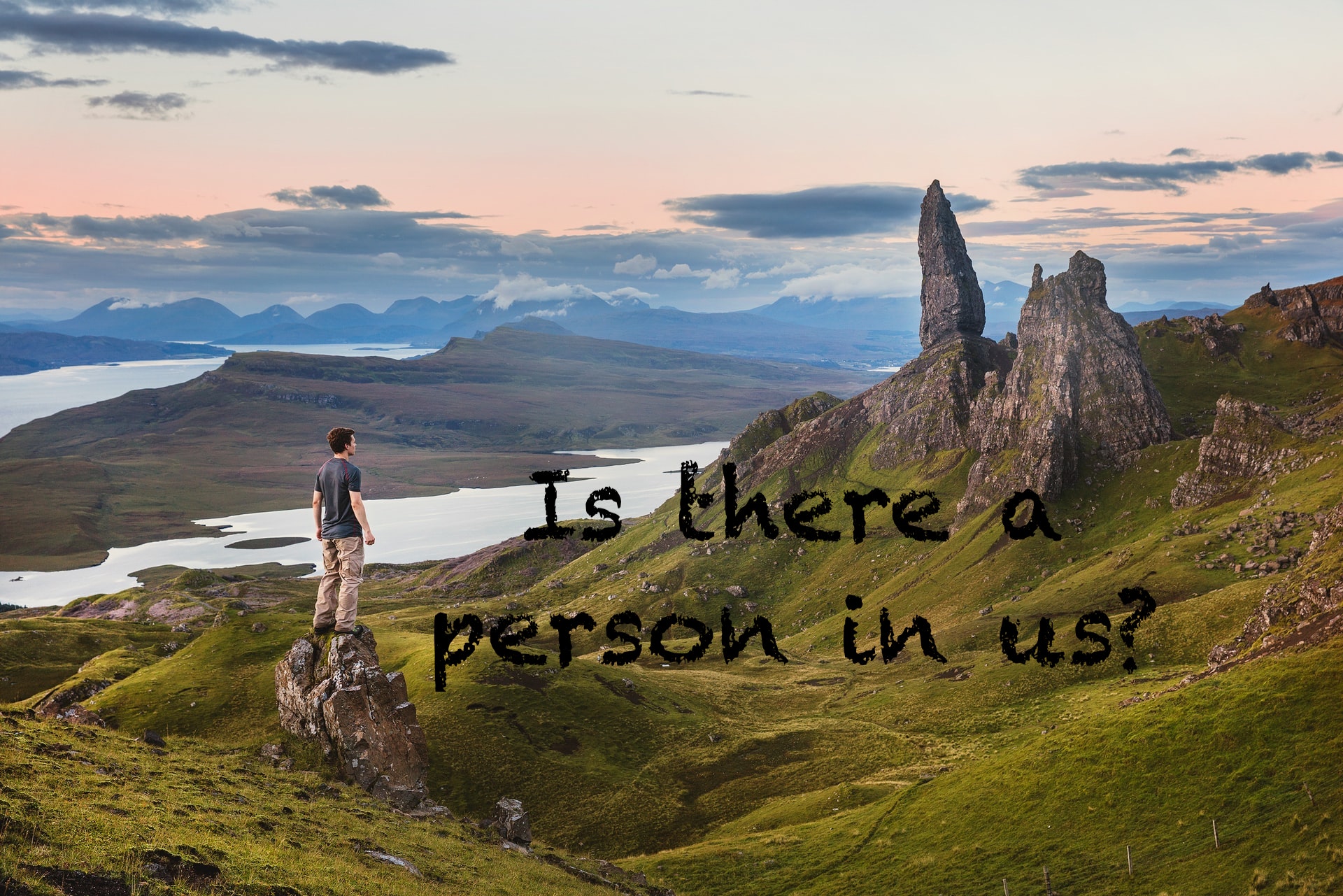This post is part of the my blog series non-duality. I suggest you to read my previous posts -- Does God exist?, How we search for God, and Who am I? before reading this post.
Almost every one of us believes that there is a "Person" in us. When we do a
little introspection and investigation of this belief, as we did in the blog
post
Who am I?, we struggle to find the person in us. We saw in our previous investigation
that our physical body, our thoughts, perceptions, sensations, feelings/emotions, or images we have of ourself
are not the real "I/me/self" because these are not always present and they
come and go (they are phenomenal); however, the activity of our body,
feelings coming and going, emotions rising and sinking etc., are observable
by us. We believe this observer to be a Person with real existence. Is this
belief true? Why do we have this belief so strongly and when does this
belief start during our life?
When we are born, we experience the entire world as one. As a baby we see
our mother and everything around us in the same way we see our own body
parts, that is with no separation. There is just one single experience of
life. At this point we don't see the difference between ourselves and
others. We don't understand the concept of "me/I". We think, act, and play
in tune with everything and everyone around us.
As we grow a bit older, the first concept of our separate existence comes
into our mind. We start believing to be separate self. This happens
because of the conditioning we get from our caretakers and also due to our
natural instincts to survive. We first start seeing our body to be "me".
Once we see this separation of ourselves (Once a separate "I" emerges),
everything around us becomes something else, the "other". And all other
things around us start transforming from being just part of a single
experience to having their own existence with names, characteristics,
values, attribution of good/bad, and a lot of other things. This is the
beginning of the outside world for us. From seeing everything and
everyone, including ourselves as one, from this point on, we start seeing
multiplicity in the world around us.
This is symbolically explained in The Bible (Genesis 3) as the "Original Sin" when Adam and Eve ate the apple from the tree of
Knowledge. From this point on, the paradise they lived in turned
into a sinful world, and they started seeing the world in terms of good
and evil, they started feeling shame, and they started feeling fear and
other things. This original sin (and the belief from then on to be a
separate person) makes us continue to Sin (take on more beliefs) and see the world in
terms of good and evil. This continues until we no longer find true
happiness in the world and finally find our salvation and rediscover heaven
that has always been there.
Many cultures don't allow babies to see themselves in a mirror for the
first year or two. This is to delay the process of recognizing themselves as
a separate person and let them continue to live in unity as long as
possible.
Once the belief of separation is formed as a baby, the process of further
division and separation (Sins) continues and we start piling up hundreds
and thousands of identities (READ: How our identities influence our thinking and actions) around an imaginary person and start believing all of them to be
"me". We associate ourselves with a race, a gender, a nationality, a
community, and a religion. We believe that we are supposed to like and
dislike things, so we start creating an imaginary persona with likes and
dislikes around food, clothing, behaviour, weather conditions, cultural
aspects and almost everything else we perceive around us. We start giving
quality and value to each "thing" around us, we compare them with other
things and start categorizing everything into likes and dislikes,
favourites, and we rank them as what is best and what is
worst.
As our body-mind grows into adulthood, we start associating ourselves with
our educational degrees, our relationships, our salary, our job titles, our
possessions, our life stories, our traumas, and our happy stories. We continue to take on these micro identities on and on. Over time, we cement a belief to be this imaginary person with hundreds and
thousands of Identities/Beliefs and continue to act on this person's
behalf.
Our culture, our education system, and our language fully supports this
division and with the support of them we freely continue to mould this
imaginary person with never ending identities/beliefs.
This bubble we create around an imaginary person becomes vulnerable when
the reality of its existence is questioned. Most of us never question this
core belief whether there is a person in us or not. But for those who
start investigating this belief, it becomes clearer and clearer over time
that the imaginary person is nowhere to be found.
If there is no person in us, and we are not our body, our thoughts, our
emotions, our feelings, our perceptions, our sensations or our images,
then who exactly are we? One thing we are sure is that we are aware of our
emotions, feelings, perceptions etc. The only thing we can say for sure from our experience is that our
Awareness is the only real thing, everything else comes and
goes.
In that case, is Awareness our true identity? More about this in upcoming
blog posts.
Peace! Aum(OM)! Amen! Inshallah!
#trueself #whoami #awareness






Comments
Post a Comment